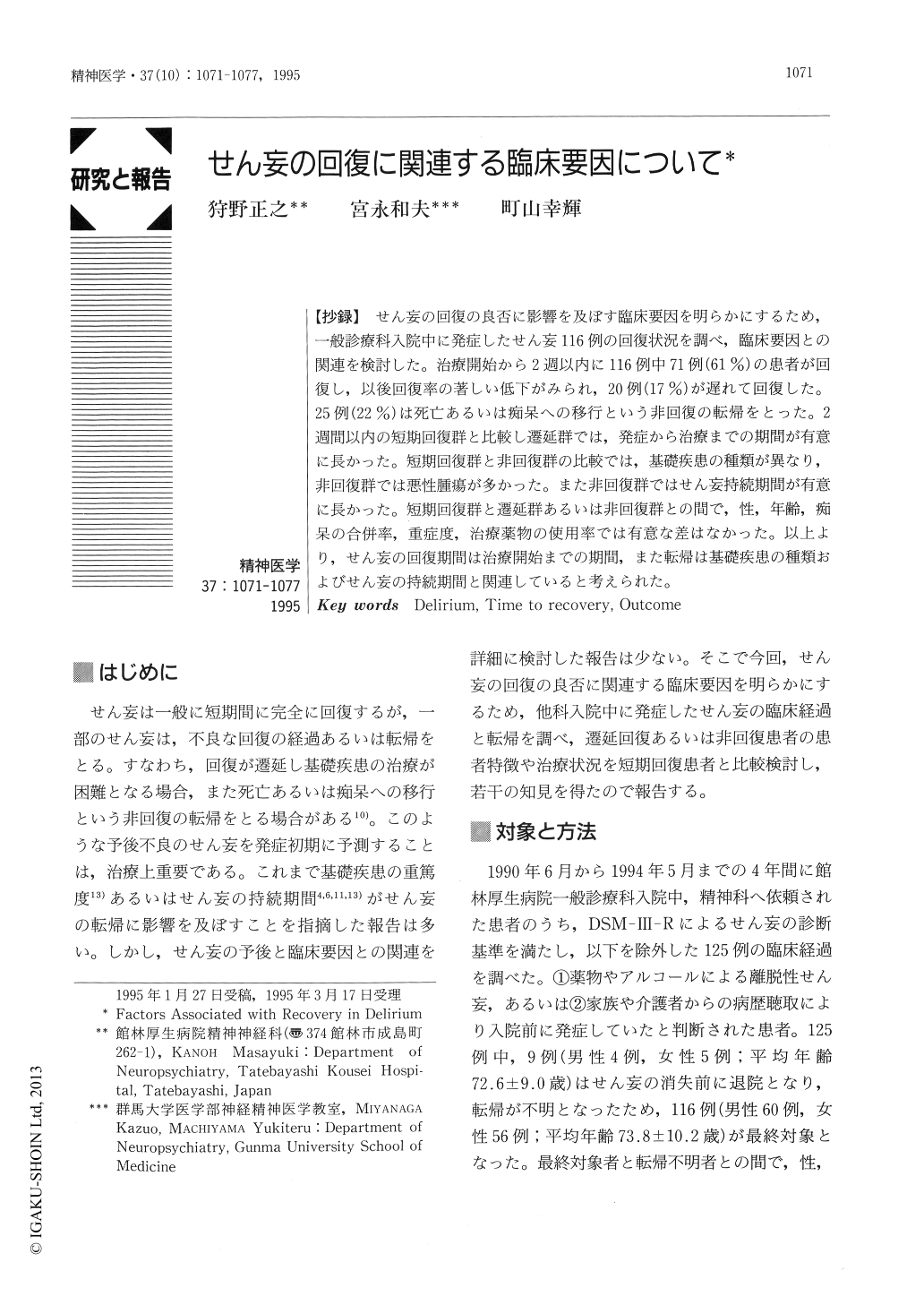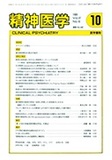Japanese
English
- 有料閲覧
- Abstract 文献概要
- 1ページ目 Look Inside
【抄録】せん妄の回復の良否に影響を及ぼす臨床要因を明らかにするため,一般診療科入院中に発症したせん妄116例の回復状況を調べ,臨床要因との関連を検討した。治療開始から2週以内に116例中71例(61%)の患者が回復し,以後回復率の著しい低下がみられ,20例(17%)が遅れて回復した。25例(22%)は死亡あるいは痴呆への移行という非回復の転帰をとった。2週間以内の短期回復群と比較し遷延群では,発症から治療までの期間が有意に長かった。短期回復群と非回復群の比較では,基礎疾患の種類が異なり,非回復群では悪性腫瘍が多かった。また非回復群ではせん妄持続期間が有意に長かった。短期回復群と遷延群あるいは非回復群との間で,性,年齢,痴呆の合併率,重症度,治療薬物の使用率では有意な差はなかった。以上より,せん妄の回復期間は治療開始までの期間,また転帰は基礎疾患の種類およびせん妄の持続期間と関連していると考えられた。
To determine the factors associated with recovery in delirium, we studied the clinical course and outcome of 116 patients with delirium who were admitted to our medical and surgical wards. Seventy-one of the 116 patients (61%) recovered within the first 2 weeks, and then the rate of recovery declined markedly. Twenty patients (17%) recovered later and 25 (22%) did not recover (death or transition to dementia). Compared with the early-recovery group, there was a longer time from initial symptoms to the referral in the late-recovery patients. The nonrecovery patients were more likely than the early-recovery group to be physically diagnosed as having a malignancy and to have had a long duration of delirium. There were no significant differences in sex, age, severity of delirium, complication of dementia, or treatment received between the early-recovery group and the late-recovery or nonrecovery group. We conclude that (1) a long duration of delirium before treatment delays the recovery; and (2) the outcome of delirium is associated with the patient's physical illness and the duration of delirium.

Copyright © 1995, Igaku-Shoin Ltd. All rights reserved.


